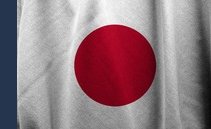Revised GDP data show economic growth for Japan, though it may soon come to an end as the Bank of Japan considers raising interest rates.

Japan avoided recession in the last quarter of 2023 after revised GDP data showed a slight upward tick. Japan is now the world’s fourth-largest economy, losing the podium to Germany at the beginning of the year.
Initial estimates for Japan’s GDP were a 0.4% contraction. If true, it would have been the second GDP contraction in a row after a 3.3% dip in the July-September period.
Instead, revised data on Monday showed the Japanese economy actually grew by 0.4%. Although this means Japan avoided recession, the revised figure still came significantly short of expectations. A Reuters poll of analysts forecast a 1.1% increase.
GDP grew 0.1% on a quarterly basis, below the median forecast of a 0.3% increase.
The main driver of economic growth was capital expenditure, increasing by 2% compared to the initial estimate of 0.1% decline. However, capital expenditure represents a small percentage of real GDP, whose biggest factor is private consumption making up 60% of the economy.
Private consumption declined in the last quarter by 0.3%, worse than the original estimate of 0.2%. "The headline is an upward revision, but domestic demand remains lackluster, particularly in consumption," said the senior economist at Mizuho Research and Technologies Saisuke Sakai.
leggi anche
Top 3 best ETFs for investing in Japan

BoJ’s dilemma
The Bank of Japan was seemingly unbothered by the news. The next BoJ meeting will take place on March 18-19th, and there’s a lot of uncertainty about the decision on interest rates.
The BoJ kept interest rates negative for almost a decade and was unwilling to change policy even though inflation was creeping up in the country. Inflation reached 2.6% in December, significantly above the 2% target.
The only policy put into place by the BoJ was an extension of the Yield Control Curve (YCC), a sophisticated financial tool to keep prices under control. The YCC forces long-term government bonds to be within a certain percentage above inflation. The higher the YCC, the more flexibility long-term bonds have to fluctuate above current prices.
The Bank of Japan extended the YCC to keep inflation under control. However, the effect was rather mild, and markets widely expect the BoJ to increase rates in the upcoming meeting.
Increasing interest rates will most likely contract the economy for the January-March period. The Bank of Japan, however, cannot risk rising inflation at a time of decreasing prices in the United States and Europe.
Moreover, China’s exports recently reached pre-Covid levels, likely pointing to a return of the Eastern giant in the global economy. Japan can ill afford to lose this opportunity, being China one of its largest trading partners.




